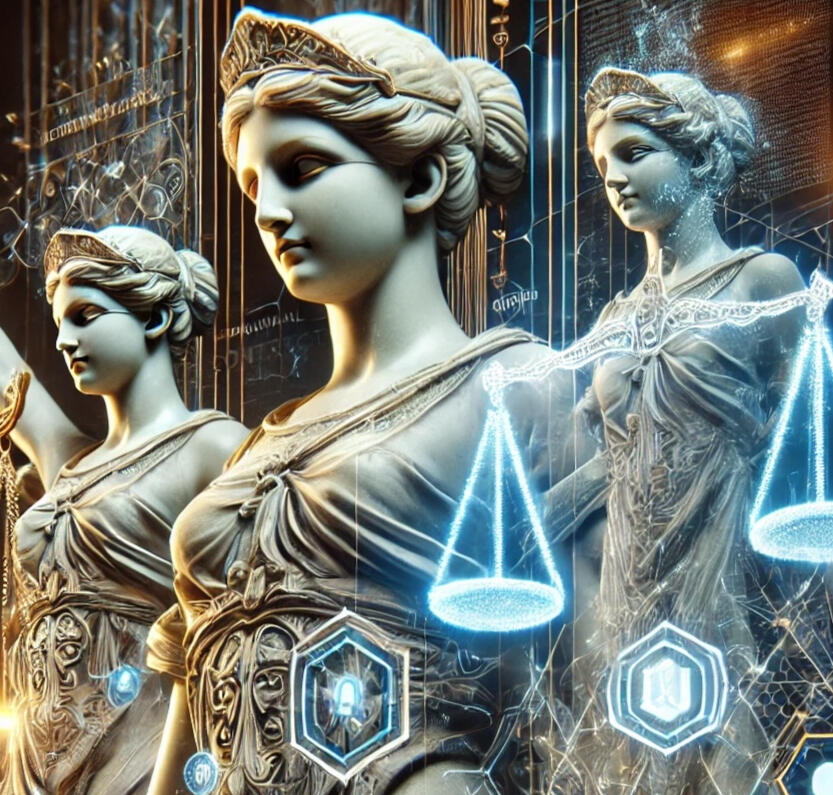
Claudius ADR
An AI tool for dispute resolution.
Claudius could help you settle your dispute out of court.
Fast, smart, helpful
• Claudius analyses your dispute, summarising strengths and weaknesses.• Estimates outcome probabilities, including for partial wins and counterclaims.• Proposes a settlement for the two sides to consider• The proposed settlement will be the solution that Claudius thinks is most likely to be accepted by both sides.• In testing on real cases, where the outcome was not public, Claudius proposed a settlement figure within 10% of the actual settlement in all cases (and within 3% in half of them)

Claudius is an AI tool, not a lawyer
• Neutral Perspective: Claudius offers unbiased evaluations of your case.
• Complementary Tool: Use before or alongside legal advice.
• Settlement Insights: Get practical suggestions tailored to your dispute.
• Proposed solution: Receive a settlement proposal for the two sides to consider. This will be a proposal which, taking everything into account, Claudius thinks is most likely to be accepted by both sides


Stage 1: Initial report
• Send Claudius the court bundle, or whatever background paperwork you have available
• Receive a concise report highlighting the strengths, weaknesses, and key aspects of each side’s case.Download fictitious example here
Stage 2: BATNA & WATNA
• Claudius works out best-case and worst-case outcomes (BATNA and WATNA), and intermediate outcomes, for each side, based on your documents and its knowledge of similar disputes.• Estimates probabilities for each outcome, including partial wins and counterclaims, to provide what negotiators call an "expected value". (Learn more about expected value)• Claudius will provide an explanation of each outcome, and justify the probabilities that it has assigned.Download fictitious example here

Stage 3:
Do we have a deal?
The final step, if you want to take it, will be for Claudius to propose a settlement figure. Stages 1 and 2 can be unilateral if you like: just one side of the dispute can purchase the stage 1 and 2 reports.But the settlement figure is most effective if both sides have purchased stage 1 and 2 reports, and provided comments to Claudius, and have both agreed to see the settlement figure (but neither side is obliged to accept it).This definitely won't just be "oh, let's split the difference". It will be the figure which Claudius considers to be the figure most likely to be accepted by both sides, taking into account Claudius' assessment of the legal risk, the financial constraints, each side's willingness to settle, and everything else that it is able to extract from the documents provided to it, and from comments that the two sides have made on the reports so far.Remember, Claudius is not a judge or arbitrator: it is not trying to impose a settlement on you. It is not even trying to predict what a judge or arbitrator would do. It is merely suggesting a figure which it thinks, with high probability, is the figure most likely to be accepted by both sides. It might be wrong. If you run the same dispute through Claudius more than once, you might get slightly different figures. This is not an exact science. You might not like the figure Claudius proposes. Or you might like it, but your opponent might not. You don't have to accept the proposed figure (of course).But during testing on cases which Claudius had never seen before, and where the settlement had not been made public, Claudius proposed a figure within 10% of the actual negotiated settlement in all cases (and was within 3% in half of them!) These real cases had endured months of negotiation followed by arduous hours of mediation before reaching a settlement. You might be able to avoid all of that by asking Cladius to propose a solution.Download fictitious example here

Who built this?

I am Bruce Greig, a commercial mediator in the UK. I have a background in tech and business negotiation.Mediation isn't rocket science.Claudius is a very new service. I think it might be able to deliver the majority of the value that I provide during a full day mediation, albeit in a very different way (and at much lower cost).I can spend hours with each side talking through their case, probing the strengths and weaknesses and helping them come to a settled agreement with the other side.Quite often both sides will have legal representation at the mediation, so the professional fees for a full day mediation can easily run to over £10k.Claudius isn't a substitute for your lawyer, but it can reduce the amount of time you need from your lawyer. At mediation, your lawyer is there all day, even if they might be waiting for me to finish talking to the other side for (cumulatively) half the day.Claudius works by sending you a series of reports which you can review over a few days when you and your lawyer have time. You don't need to set aside an entire day, unlike in a traditional mediation.Claudius isn't a direct substitute for a human mediator. But Claudius may be able to generate a lot of the same benefits of mediation, in a very different way.
What is under the hood?

Or, "Why can't I just ask ChatGPT?"You can, but:You need the right prompts.
Claudius is powered by a series of carefully crafted prompts which walks the underlying AI model step-by-step to generate useful reports for you and, crucially, to suggest a settlement figure.Claudius can read roughly twice as much material as ChatGPT.
Claudius currently uses Anthropic's 3.5 Sonnet under the hood, which can read and consider about 150,000 words (about 600 pages of double-spaced typing), compared to less than 100,000 words for ChatGPTScans-of-scans
Court bundles often end up with scans-of-scans which are not very machine-readable. Claudius puts your documents through an OCR service first to extract the underlying text reliably.Sonnet 3.5 is just a bit better than ChatGPT at the moment
In testing there were some disputes where ChatGPT just didn't get it and became confused. Same with NotebookLM which has an even larger context window than Sonnet 3.5. We didn't see any confusion from Sonnet. And Sonnet spotted some things which were really nuanced and subtle, which generally ChatGPT didn't. But AI models are changing all the time, Claudius could well switch the underlying tech to a different model in future.
Pricing
Stage 1 Summary, Strengths & Weaknesses:
£100 (Example report)Stage 2 Best case, worst case, intermediate outcomes, with estimated probabilities for each:
+ £100 (£200 total) (Example report)Stage 3 Suggested settlement figure
+ £150 (£350 total) (Example report)These are based on Claudius reviewing one bundle (or one set of documents if they are not yet organised into a bundle) of up to 500 pages. The fees can be shared between the two sides (in which case both sides would see the same output reports).Reports are reviewed by us before being sent to you. Allow 24hrs for the report to be generated and reviewed.Prices exclude VAT
Get started
If you are ready to get started, or just have questions, fill out the form below and we will be in touch.
Terms & privacy
Claudius Alternative Dispute Resolution ("Claudius ADR" or "Claudius" or "the product") is a product of Bruce Greig Ltd (A company registered in England & Wales. Company number: 11433808)
By using this service, you agree to the following terms and conditions:
1. Beta Nature of Claudius
Claudius is in its beta phase and may not be fully functional. Use of Claudius is at your own risk, and no guarantees are provided regarding its performance or reliability.
2. Uploading Your Paperwork
You may upload documents (referred to as a "bundle") for processing. By doing so, you confirm that you have the right to share these documents and that their contents do not violate any applicable laws.
3. Confidentiality during Review and Processing
Your bundle will undergo three stages of processing:
Human Review: We will review your bundle to ensure it is suitable for processing. We may use OCR software to generate a version which is machine-readable. We commit to keeping your information confidential and secure during this step.
LLM Processing: After review, your bundle will be submitted to a large language model (LLM) managed by Anthropic (www.anthropic.com). Anthropic's LLM will generate reports based on your bundle and on the prompts which we submit to it. As a commercial user of Anthropic's services, we rely on their Commercial Terms (www.anthropic.com/legal/commercial-terms) (not their Consumer Terms). These terms include a commitment from Anthropic not to use information we submit to train their model, and to keep that information confidential. Nevertheless, you should read their terms, paying particular attention to the confidentiality clauses, to satisfy yourself that the terms offered by Anthropic to us provide you with sufficient assurances.
Report handling: We will review the reports which the LLM generates before sending them to you. We will keep these reports confidential and secure.
4. Changes to the Terms
These terms may be updated from time to time. Continued use of the service constitutes your agreement to the updated terms.
5. Jurisdiction
These terms shall be governed by English Law and the Courts of England and Wales shall have exclusive jurisdiction to settle any dispute which may arise out of or in connection with these terms.
© Bruce Greig Ltd